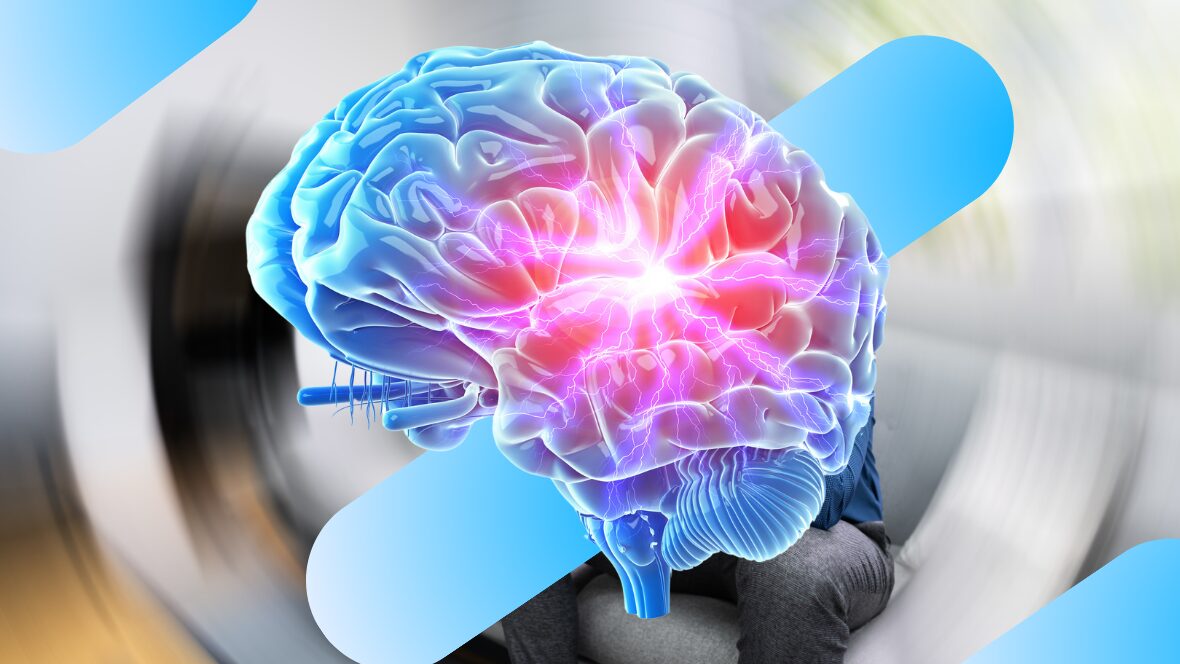Introduction: It’s Not Just in Your Head
Do you ever feel like your brain just isn’t working the way it used to?
Maybe you’re more forgetful than usual, or find yourself easily overwhelmed, anxious, or irritable. Perhaps your mind feels foggy and your thoughts slow. If these symptoms have been brushed off as “normal aging,” “hormonal,” or “just stress,” there may be something deeper at play:

What Is Neuroinflammation?
While inflammation is a natural part of the body’s healing process, chronic inflammation—especially in the brain—can lead to serious long-term effects.
This type of inflammation, called neuroinflammation, affects how your brain cells communicate and function. It can damage neurons, alter neurotransmitter levels (like serotonin, dopamine, and GABA), and disrupt brain circuits related to mood, memory, focus, and cognition.

How Inflammation Affects Your Brain
Chronic inflammation in the brain can be triggered by a variety of underlying issues, including:
-
Poor gut health (80% of your immune system lives in your gut)
-
Blood sugar instability and insulin resistance
-
Chronic stress and elevated cortisol
-
Toxin exposure (mold, heavy metals, pesticides)
-
Food sensitivities or inflammatory diets
-
Autoimmune conditions (e.g., Hashimoto’s, lupus)
-
Silent infections (like Epstein-Barr virus or Lyme disease)
When your brain is inflamed, your body responds by slowing down neurological processes to protect itself. But this “slow down” is exactly what you feel as brain fog, memory issues, and mood instability.
Common Symptoms of Brain Inflammation
If you’re experiencing any of the following, your brain might be inflamed:
-
Constant brain fog or mental fatigue
-
Forgetfulness and difficulty with word recall
-
Anxiety, panic, or racing thoughts
-
Low mood or emotional flatness
-
Irritability or emotional sensitivity
-
Insomnia or non-restorative sleep
-
Trouble concentrating or multitasking
These symptoms are more than frustrating—they’re your body’s way of waving a red flag.

The Gut-Brain-Inflammation Connection
One of the most powerful drivers of brain inflammation is gut dysfunction.
Leaky gut (intestinal permeability) allows toxins, undigested food particles, and bacteria to enter the bloodstream, activating the immune system and fueling inflammation—including in the brain.
An unhealthy gut can also interfere with nutrient absorption, gut-derived neurotransmitters (like serotonin), and immune regulation—further impacting how you think and feel.
This is why addressing gut health is foundational in functional medicine approaches to mood and cognitive issues.
How Functional Medicine Approaches Brain Inflammation
At Progressive Medical Center, we address neuroinflammation by identifying and treating its root causes. We don’t just suppress symptoms—we ask: Why is the brain inflamed in the first place?
-
Inflammatory markers (CRP, homocysteine, cytokines)
-
Gut health and microbiome analysis
-
Food sensitivity panels
-
Neurotransmitter testing
-
Hormonal balance
-
Heavy metal and toxin screening
- Anti-inflammatory nutrition (e.g., omega-3s, antioxidants, polyphenols)
-
Gut healing protocols to repair intestinal lining and rebalance flora
-
Neuroprotective supplements like curcumin, resveratrol, phosphatidylserine, magnesium, and B vitamins
-
Lifestyle medicine, including stress management, sleep optimization, and movement
-
Detoxification support to remove hidden environmental triggers
Each patient’s care plan is customized based on their biology, symptoms, and root causes.

What This Means for Patients with Cognitive Decline or Mood Disorders
For individuals facing early signs of cognitive decline, depression, or anxiety, reducing brain inflammation is a critical step toward recovery.
Supporting brain health through anti-inflammatory strategies can improve:
-
Mental clarity and focus
-
Memory recall
-
Emotional stability
-
Energy and motivation
-
Overall quality of life
And for patients recovering from chronic illness or neurological conditions, reducing inflammation may even help protect against further cognitive decline.
Final Thoughts: Don’t Settle for “Normal” Brain Fog
If you’ve been told your brain fog, mood swings, or forgetfulness are “just a part of life”—think again. These symptoms often have an identifiable, treatable root cause.
Your brain is resilient. And with the right support, you can regain clarity, calm, and confidence in your mind again.
Want to Find Out If Inflammation Is Affecting Your Brain?
Let’s get to the root. Schedule a consultation with our functional medicine team and start your path to clearer thinking and better brain health.


